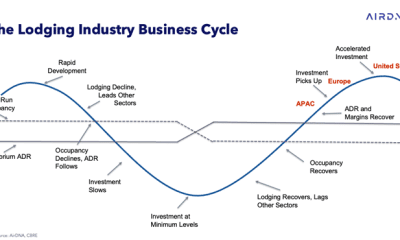
In a 6-3 vote Monday night, the San Diego city council adopted short-term rental regulations allowing a host to be issued one short-term residential occupancy license for the host’s primary residence and one additional license for an accessory dwelling unit on the same lot as the primary residence, effectively banning the traditional second-home vacation rental in which the owner does not live on site.
“HomeAway is extremely disappointed in the city council’s decision to ignore the mayor’s compromise and effectively ban short-term rentals in the city of San Diego,” said Philip Minardi, director of policy communications with HomeAway. “This outcome will not only negatively impact the local economy but will deny many San Diegans of their private property rights. We plan to evaluate next steps in the coming days to determine an appropriate path forward.”
Along with securing licenses, which must be renewed annually and cost $950, all hosts are now required to:
- Secure a transient occupancy tax certificate
- Collect and remit the city’s 10.5 percent transient occupancy tax
- Comply with the Good Neighbor policy and include a local contact to immediately manage any problems
- Display their license numbers in all advertisements
- Collect and maintain detailed records on each short-term rental transaction for a period of three years
- Pay new Affordable Housing Impact Fees of $2.73 per night rented for home shares and $3.96 per night rented for whole home rentals
Homes with four or more bedrooms must additionally obtain a neighborhood use permit.
New rules also apply to rental platforms such as Airbnb and HomeAway. As listed on SanDiego.gov, they must:
- Provide notice of the STRO and TOT requirements to each host prior to their listing
- Collect TOT and Affordable Housing Impact fees at the same time rent is collected
- Ensure only licensed or registered hosts are using the booking service on the hosting platform
- Collect and maintain detailed records on each STRO transaction for a period of three years
The new regulations will go into effect next July, along with a new enforcement structure outlined with the new ordinance. The city will create a new team of police and code enforcement officers specifically to handle short-term rental violations, a license and registration system, and a complaint hotline or app. If a host receives complaints, the first is considered a warning, the second may result in a citation, and the third in a 12-month period could result in their license being revoked.
Although the debate around short-term rentals in the city has been going on for years, Faulconer’s proposal released in June stirred new intensity leading up to the vote, including more than five hours of public testimony during yesterday’s city council meeting. Arguments ranged the full spectrum from no regulations of short-term rentals to entire bans, and advocates from several camps campaigned fiercely with ads, sharp op-eds, and passionate testimonies to the council.
Share San Diego led a major campaign in favor of regulations over a ban, showing up en masse in lime green shirts for yesterday’s vote. According to its website, the group advocates responsible property management and good neighbor policies for renters of any kind and residents themselves. “We do not support policies that will trample property owners’ rights and negatively impact the tourism that San Diego depends upon as a major part of its economy.”
The California Hotel and Lodging Association sponsored the campaign It’s Time San Diego to oppose short-term rentals, arguing that they are a danger to the city. “Between the revolving door of strangers, the drunken parties, and the skyrocketing housing costs caused by short-term rentals, San Diego neighborhoods are becoming increasingly unsafe and unlivable for families,” its website states.
Amending Mayor Faulconer’s Proposal
The new regulations amended Mayor Kevin Faulconer’s proposal in which a host could be issued no more than two whole-home short-term rental licenses, one for his or her primary residence and one for a secondary residence, excluding the Mission Beach community where there would be no license cap. His proposal also included a minimum three-night stay requirement in San Diego’s coastal and downtown neighborhoods including Pacific Beach and La Jolla.
In addition to banning of secondary residence rentals, the council removed the Mission Beach exclusion and minimum stay requirements in the adopted ordinance. Much of the rest of his proposal was left unchanged.













What about the big corporations like VRBO, Home Away, and Airbnb? They are making money off hosts and landlords and have no physical infrastructure to offer, like hotels. The loads of tax and licenses do not go to the city, but to the vacation rental apps in Silicon Valley.
Some old friends have been priced out of their residences in Mission Beach, as their landlords realized how much money they are able to make renting only short term.
Back in 2015 I was lucky to be able to rent an ocean front apartment for at least 9 months.
I do understand that you are able to make more money with short time rentals, however is it really affecting your economy if you would rent it permanently to local residents after owning the place since 1993?
Is there such big of a loan outstanding after 25 years?
Since that has been the best place I’ve ever lived in my entire life, I do understand that residents are claiming their fair share of beach properties.
Especially since the short term rental proportion has taken 40% and growing.
Pricing your own people out of the market to have random people stay all the time is not fair.
That is absolutely terrible. That completely ignores
property rights and is un-American.
I guess I won’t be going to San Diego any more. To claim that the vacation rental industry is doing anything to San Diego except giving the city loads of tax, license, and sales revenue is just silly. Homeowner neighbors love the increased property values. Guests love the privacy and relaxation they can’t get at a hotel. I think there are just a few people living at city hall making a fuss about it. All this will do is cause second home homeowners to lose their investment, continue to operate illegally, or sell (reducing market values for homeowners in the area).
Josh, I have owned a condo in a Mission Beach fourplex for a couple decades and can assure you it is not “silly”. Many private owners (like myself) have been terrorized long enough by the Short-Term Vacation Rentals – STVR’s. I’m sure you were respectful to the neighbors during your stay but will again assure you in Mission Beach, the majority of STVR’s are awful neighbors and its getting nothing but worse. Jerry (above) makes no refrence to the properety rights of Non-STVR’s. Daily rentals were NEVER allowed in Mission outside of hotels but without regulations and enforcement, our rights have been trashed (Like the Communities). I would bet you wouldn’t want a hotel as a neighbor where you live…
My Ocean Beach vacation is across the street from a motel. My neighbors rent my vacation rental for their friends and family to stay at while visiting. It provides better accommodations than a motel/hotel. I have been a 5 star VRBO owner since 2012 and have owned the property since 1993 (in my family since 1951). The ban is short-sighted to the benefits vacation rentals provide to certain San Diego neighborhoods. Where is the justice to allowing a motel to run business across the street while my rentals are banned. Seems like I have been strong-armed by the hotel industry.
Yes you and many many other property owners like yourself have been strong armed by the hotel industry. They are really the “new” money behind the ban movements and again big corporations get their way and private property owners get pushed to the ground. Connie I’m sure your neighbors support your right to share your home with whom you chose and it sounds like you’re a great homeowner and VR host. I’m sorry that the city of SD is this shortsighted and gullible.